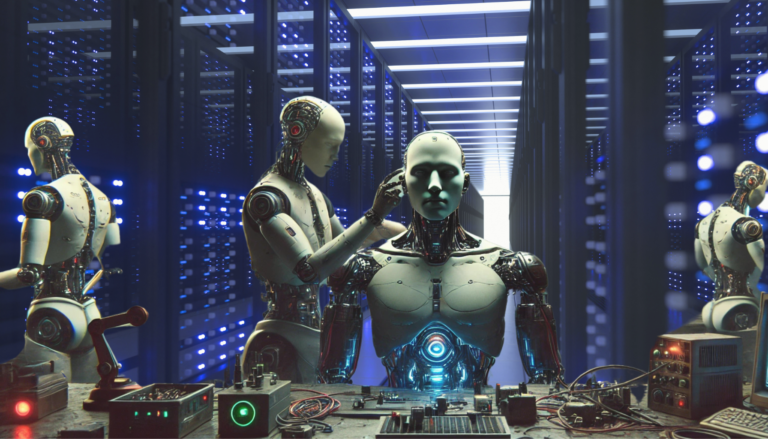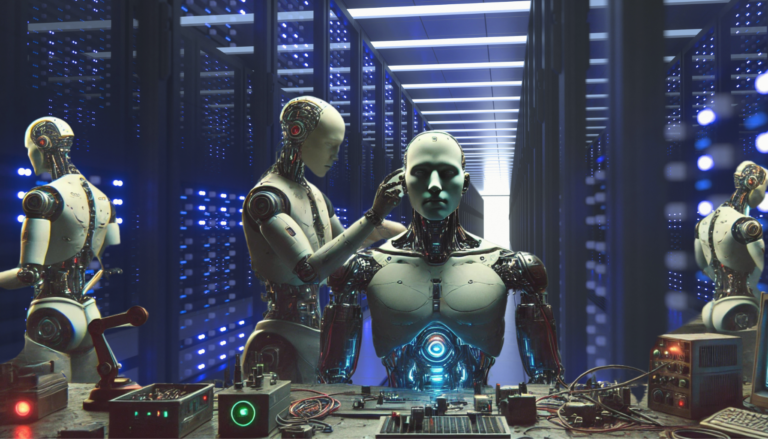
AI Is Leveling Up, But Are We Ready for the Fallout?
It’s not a sci-fi script this time. Ever since OpenAI rolled out its o1 ChatGPT reasoning model, it’s redefining what we thought machines could do. The model replicates high-level human reasoning across disciplines like physics and biology. Now we’re left wondering: How far can this actually go, and what’s next?
Back in 2019, ChatGPT crashed onto the internet like a tidal wave. Everyone from programmers to parents diving into new recipes got curious about the so-called “AI revolution.” It wasn’t just hype—things moved fast. AI’s influence now runs deep, embedded into everything from your phone’s assistant to those Ray-Ban sunglasses you probably don’t need.
But here’s the kicker: AI isn’t just going to live in your apps or devices. With tech evolving at this pace, it’s looking to weave itself into life’s fabric. Seriously—think digital Christmas sweaters that shift designs mid-party. So, let’s unpack where all of this is headed.
Health, Justice, and the Classroom—AI’s New Frontlines
Picture this: you wake up, and your smartwatch pings. Not just a step count—it’s diagnosing your heart rate like a pro cardiologist. It even maps out a treatment plan. This isn’t sci-fi; it’s AI reasoning turned real.
Healthcare might just be the tip of the iceberg. Imagine AI stepping into courtrooms or replacing the blackboard in classrooms. Are we about to step into a world where algorithms rewrite our most human professions?
Doctors Without Degrees?
AI-driven health tools could make medicine accessible like never before. Immediate diagnostics, affordable tools, and personalized treatments—sounds great, right? But what happens when these systems fail?
You might not see lawsuits flying against an algorithm, but responsibility becomes a gray zone. How do we safeguard patient data or ensure biases don’t lead to dangerous outcomes? With convenience comes complexity, and nobody has all the answers yet.
Courtroom Chaos or Justice for All?
Now, imagine AI legal systems drafting briefs or analyzing decades of case law. Legal help for the masses? Sure, in theory.
But fairness? That’s a different story. Algorithms inherit biases. And when a courtroom loses human nuance, the heart of justice might just flatline. Will AI advocates champion equal access, or will they widen the cracks?
Schools of the Future—or Surveillance Nightmares?
Think of digital tutors that teach in any language and adjust to your kid’s learning style. It’s a game-changer for underfunded schools—if it works. But strip the human element, and classrooms risk becoming sterile data centers.
How do we ensure AI enhances education instead of widening the gaps for disadvantaged students? Human teachers aren’t just vessels for facts; they mentor and inspire, something even the smartest bot can’t mimic. Besides that, with the income disparity of some communities, what will happen to students at schools who are years behind others in receiving this technology? Only time will tell us if AI will bridge the divide or only widen the gap of educational inequality, but we are hoping for the former.
AI, Speed, and That Feedback Loop of Doom
Here’s the wild part: advanced AI isn’t just developing—it’s helping to evolve itself. With advanced reasoning AI, how can we tell if innovation is still rooted in human brilliance or increasingly driven by machines guiding programmers through ideation and exploration? Each new iteration pushes boundaries further. But who controls the cycle?
What happens when this tech grows faster than its creators can understand? Regulation is trailing behind, and accountability is becoming an abstract concept.
Addiction to Convenience
When was the last time you found your way without a GPS? Exactly. The more we lean on AI, the more we risk outsourcing basic human skills. It’s a trade-off that doesn’t just affect individuals but reshapes society as a whole. Can you picture a society fully reliant on the reasoning of godless, gutless, unconscious machines, grappling with the fallout of advanced tech that’s already fueled countless new social issues just to keep us feeling significant? The real question isn’t “What will AI look like in 40 years?” The real question is “What will people look like in 40 years?”
Final Thought: Are We Steering or Just Watching?
This isn’t a call to fear the machines. It’s a reminder that the future AI offers depends on what we allow it to shape. We’re building something massive—whether it saves or sabotages us? That’s still up in the air.
Disclaimer:
This article is for informational purposes only and does not constitute financial, legal, or professional advice. The information provided is based on current knowledge and understanding, and while we strive for accuracy, we make no guarantees regarding its completeness or applicability. Parler assumes no responsibility for any actions taken based on this information. For specific advice, please consult a qualified professional.

